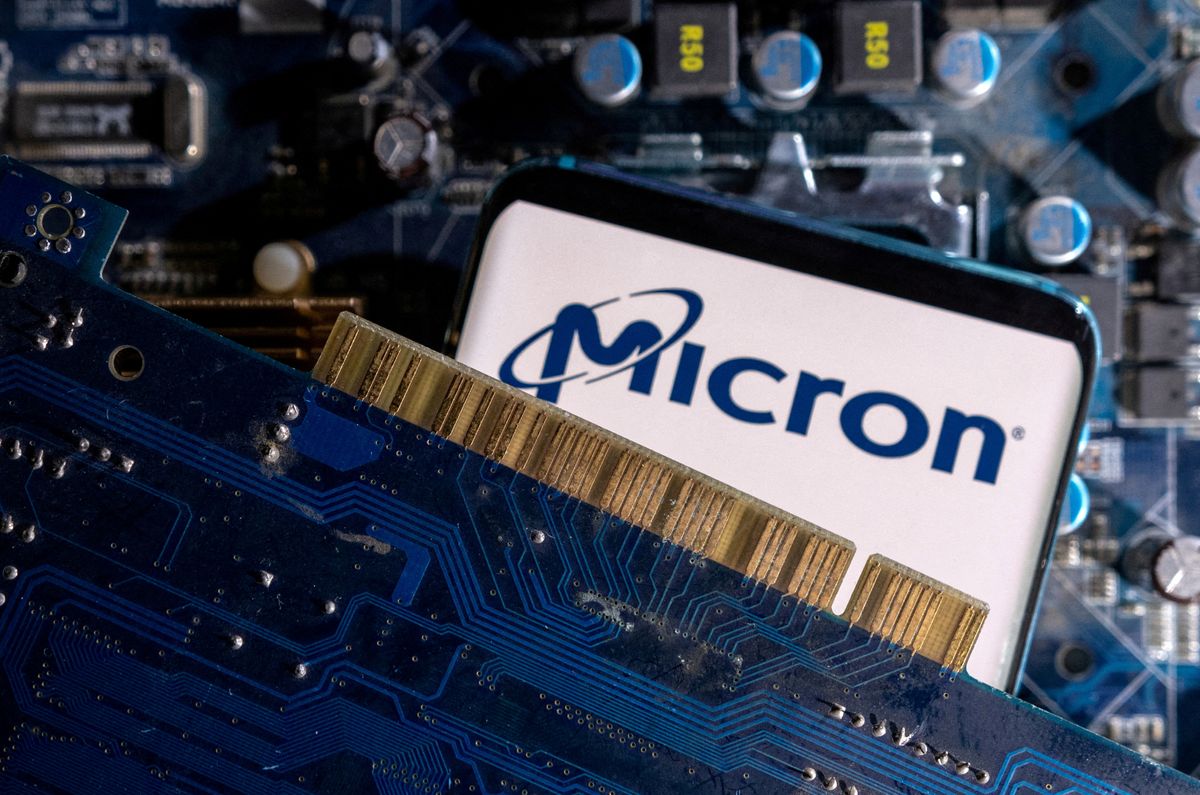Micron and Japan shake hands on a US$1.5 billion chip boost
Japan is all in for the chip game and sees chips as the key ingredient to its economic fortress.

A few minutes every morning is all you need.
Stay up to date on the world's Headlines and Human Stories. It's fun, it's factual, it's fluff-free.
The backstory: Semiconductors are like the secret sauce behind all our cool gadgets, from smartphones to self-driving cars. And both the US and China want a big slice of that chip pie.
Last October, the US dropped a bombshell on China and said, "No more fancy chips or chipmaking gear for you." It slapped a ban on Chinese companies from buying advanced chips and the equipment to make them unless they managed to get a special license (on top of other restrictions). It was a major blow to China's chip ambitions. Then, in March, the Netherlands and Japan joined the party. They put restrictions on selling chip manufacturing equipment abroad. That means it became even harder for China to get its hands on the technology it needed to boost its chip industry.
And guess what? On the same day, China responded by launching a cybersecurity investigation into Micron, a big player in the US chip game. This was a big deal because Micron gets about 11% of its revenue from sales to China.
More recently: Well now, Japan is flexing its muscles and making moves to boost its own semiconductor industry. One of the reasons is to reduce the nation's dependence on foreign chip suppliers and ensure a steady supply for its high-tech industries. Plus, the country doesn't want any surprises if the global chip supply chain starts wobbling or if things get more tense between the US and China.
Japan is all in for the chip game and sees chips as the key ingredient to its economic fortress. In fact, in 2021, it gave an eye-popping ¥774 billion (around US$6.8 billion) in funding to supercharge its own semiconductor investments. Last September, the nation even pledged to hand out a cool ¥46.5 billion (US$332 million) to US-based Micron to help make its chips in the land of the rising sun. In fact, Micron has been on a crazy spending spree in Japan, investing over US$13 billion in the country since 2013.
The development: Now, the US chipmaker has reportedly scored a mind-blowing ¥200 billion (US$1.5 billion) incentives deal with the Japanese government. The agreement isn’t public yet, but insiders have told Bloomberg that Micron is set to get this massive boost to produce its fancy next-gen memory chips in Japan.
To make it happen, those insiders said the company is splurging on some top-notch chipmaking equipment from Dutch company ASML to create something called DRAM chips at its Hiroshima factory. You know, the ones that act as the brain for your computer or phone, storing and processing all your precious data.
With this, Micron is bringing ASML’s cutting-edge chipmaking equipment called EUV to Japan for the very first time. It's a huge step that aligns with the government's goal of being a powerhouse in chip manufacturing. On Thursday, as Japanese Prime Minister Fumio Kishida and a bunch of chip honchos, including Micron's CEO Sanjay Mehrotra, met, the company confirmed it would invest as much as ¥500 billion (US$3.6 billion) in Japan.
Key comments:
“Micron’s Hiroshima factory will play a key role in the G-7’s ambition to strengthen semiconductor chip supply chains,” said Akira Minamikawa, an analyst with the research firm Omdia. “It is the most important location for the US company.”
“It’s possible that the investigation of Micron is intended to pressure the US and its allies to tread lightly on export controls,” said Gerard DiPippo, a senior fellow with the Economics Program at the Center for Strategic and International Studies in Washington. “It’s even more likely that Beijing is legitimately worried about China’s reliance on Micron chips, or really any US technology. Expect more actions like this going forward.”
“We believe this will further strengthen the US-Japan partnership in semiconductors,” said Yasutoshi Nishimura, Japan’s Ministry of Economy, Trade and Industry chief, at a press briefing when he unveiled Japan's plan to give Micron subsidies last September.




Comments ()